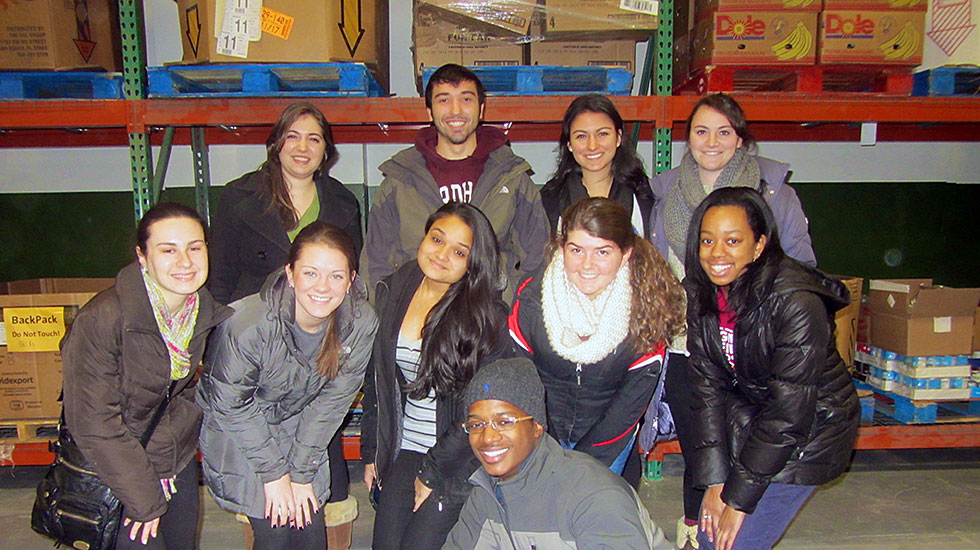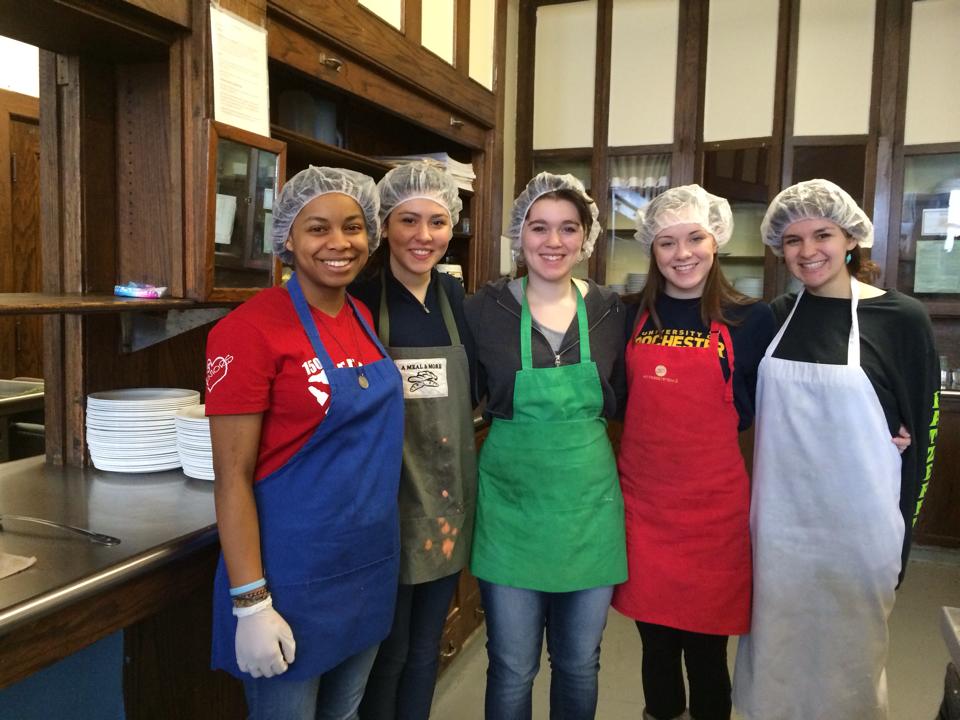Ever wonder what happens to all of those leftover dining hall bagels at the end of the day? Here’s a hint: they aren’t served the next morning. Huge yet relatively overlooked, food waste is a global problem that I could spend pages ranting about (like some friends at Chicago have already done). Although it may be inevitable, it can be reduced significantly. Luckily, there is a campus organization that sympathizes with my deep-seeded distress and, more importantly, does something about it.

Photo courtesy of the Green Dandelion
Food Recovery Network is a national volunteer organization committed to reducing food waste by donating leftover foods to homeless shelters, soup kitchens and similar organizations. Every week, UR students collect frozen leftovers from Douglass, Starbucks, Connections and Pura Vida and deliver them to hungry Rochestarians at St. Peter’s Kitchen . The recovery inventory is shared with staff, who can then keep track of overstocked foodstuff and adjust accordingly.
Volunteers also help serve meals at the soup kitchen and eat with their “customers.” It’s an eye-opening experience, for many of the soup kitchen regulars are, contrary to popular assumption, not homeless.

Photo courtesy of UR Food Recovery Network’s Facebook
To raise awareness, FRN and Spoon hosted a Waste-Free Wednesday dinner at Douglass Dining Hall on April 9th. The Waste-Free Wednesday menu featured the most commonly recovered foods on campus: beans, French toast, brown rice, potatoes and, of course, bagels. As a co-sponsor, Spoon contributed some recipes along side the dishes usually served at the soup kitchen. Douglass staples like the noodle bowl and pizza were still available for the less adventurous, but the stars of the night were the shepherd’s pie and oven-browned potatoes. They were so popular that the taters eventually ran out and were replaced with rice. Students not only enjoyed a change of pace from the usual fare, but also learned about food waste reduction, leftover reuse and volunteer opportunities.
Speaking of which, FRN is definitely a volunteer opportunity worth checking out. Sure, going into the bowels of Douglass to inventory 200 pounds of bagels is cool in and of itself; but more importantly, it’s humbling to be reminded of how valuable food is to those who need (and appreciate) it. Here’s something else to chew on next time you go to that event for free pizza.
Wanna learn about more food-based volunteering?




